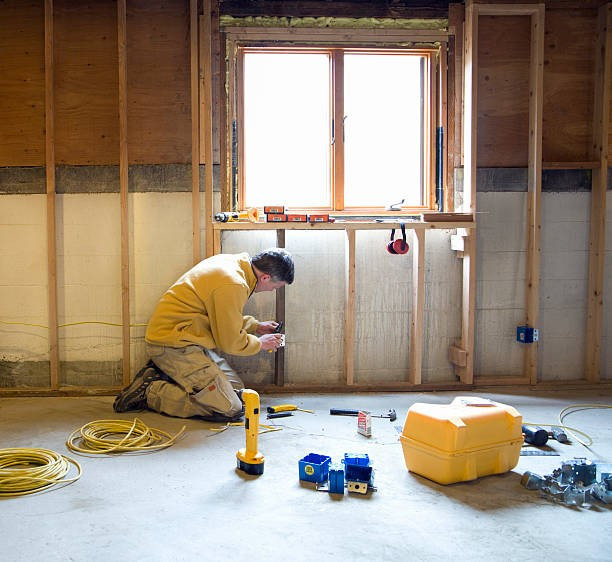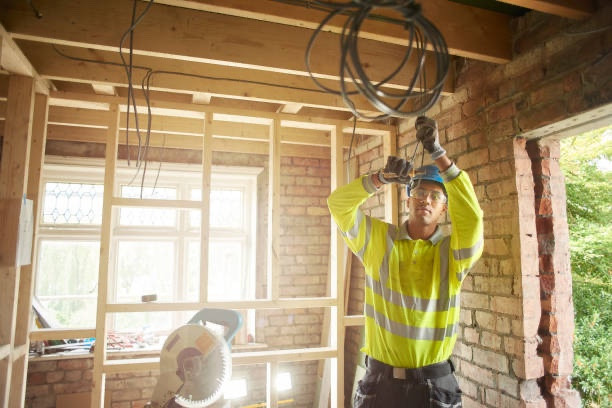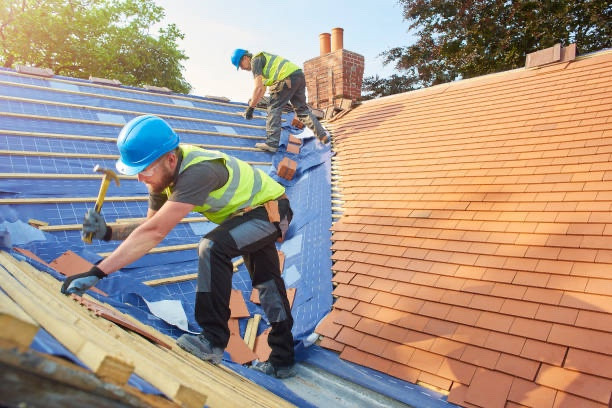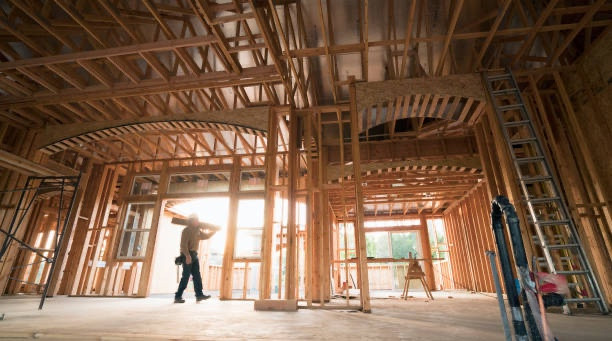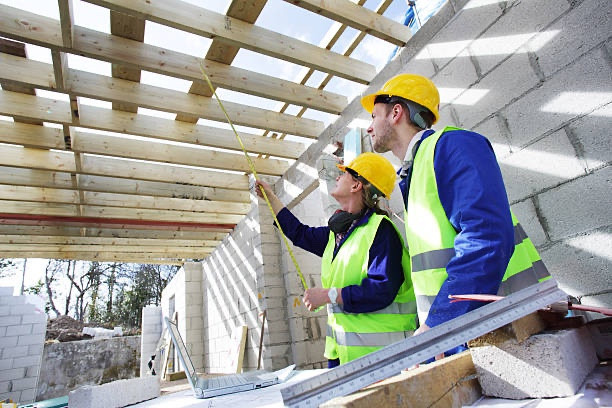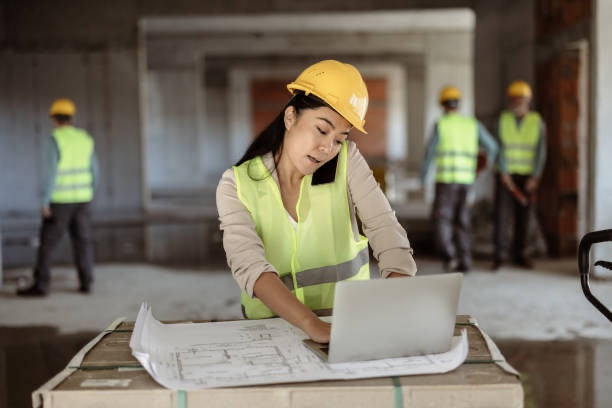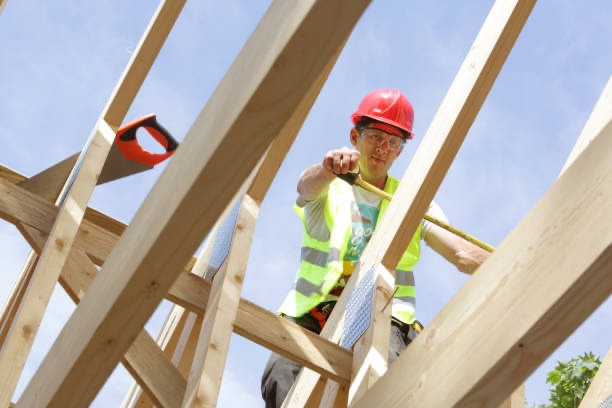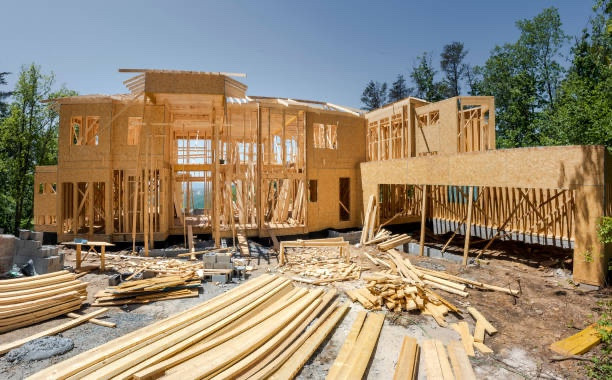PSALTER 46 Investment Services ™
Home Improvement Investment Plans
____________________________________________________________
____________________________________________________________
Home improvement is an activity undertaken by homeowners to add value to their properties. This increase in value becomes a part of the property tax basis, which affects the taxable assessment of the household in the future. Home improvements can include additions to the home, such as the installation of a new bathroom, additional bedroom, sunroom, or extras to the property, such as a swimming pool, gazebo, or new fencing. A completely remodeled kitchen or a significant home extension can also be considered a home improvement.
It's important to note that not all home improvements are tax-deductible or eligible for tax credits. However, there are some ways in which a homeowner can make improvements and receive these deductions. For example, home upgrades made for medical purposes, such as wheelchair ramps, lowered kitchen counters, installation of grab bars in bathrooms, or a swimming pool, could qualify as a tax deduction. Home improvements made to reduce the environmental footprint of the home, such as water-saving toilets or faucets and energy-efficient heating and cooling appliances, are also eligible for tax credits.
Replacement windows may also be eligible for tax credits if they meet the criteria of home improvements aimed at saving energy or resources. It's important always to use a licensed professional and keep proper documentation. Additionally, homeowners can donate leftover construction materials to charities, such as Habitat for Humanity, and deduct these expenses. However, typical home improvements and upgrades are not eligible for deductions. Still, they should be added to the home's value and tax basis. Homeowners should invest in their homes to improve their value, lower heating and cooling bills, or for necessary purposes.
While home improvement tax deductions can be available, the returns on home improvement or home repairs will be found in the long term—the investment in the property and not principally during tax season. Carrying out repairs to maintain the home's appeal and condition should improve your and your family's comfort—other home improvement deductions. For the most part, to understand is to consider the tax deductions for home enhancements. Conservation-based credits differ from year to year. The trend has increased as the need to conserve power becomes a national priority. When planning an improvement, it is prudent to consider the tax credits for environmentally friendly items, such as solar water heaters.
Even some repairs can be converted to tax deductions if the repair qualifies for an energy credit. Home improvement for medical purposes is a separate area that could have a tax impact. Suppose you add a pool or make a home more handicapped-friendly. In that case, the improvement cost could be considered a medical deduction. To do this, you should have a written medical statement from a doctor or a hospital that such developments are required for medicinal purposes. You also need to realize that the medical deduction will only be valid for the amount that exceeds the home's increased value due to the improvement—considering which medical expenses must exceed 7.5% of adjusted gross income to claim as a deduction.
The key to any home improvement deduction is accurate and honest record-keeping. It is the case for any conclusion. Still, it may be more necessary for a home improvement project than most others. It makes sense to do independent appraisals before and after the project to provide accurate information on the home's value. When it comes to home improvement, there is more to it than just upgrading. Much planning must be implemented, and learn what to know about getting your project done right. Statistics of home improvements may assist in your planning. When equipped with this information, your upgrade venture will go as planned and be on a budget, on time, and with uniformity.
What are home improvement statistics? This information comes in multiple distinctive ways, including but not limited to products, prices, timetables, investments, and satisfaction. Concisely, home improvement statistics means information. It is easy to gather information from statistics websites such as www.census.gov.
Understanding home improvement statistics can be incredibly useful when planning a renovation project. These statistics can provide you with valuable information to help you make informed decisions about your investment. Whether you're planning to landscape your yard, remodel your kitchen, or refurbish a bedroom, there is diverse data available to help you. For instance, you can find out the estimated cost of your project, which plants would thrive in your yard, and how long it typically takes to complete similar projects. When it comes to remodeling a bedroom or kitchen, you can use statistics to help you make decisions based on time, cost, value, and recommendations. By taking the time to properly plan your project with the help of home improvement statistics, you can ensure that your renovation is well-managed and successful.
Investing is a powerful way to build wealth, but it can also be a challenge. And when you're investing your money and have little knowledge, that's especially true. We've designed our service to help you make smart investment decisions.
Jada Lu
New York
Home improvements are definitely a big deal in the US. People spend a whopping 22 billion dollars every year on home improvement projects, and this trend has remained steady for the past five years. There are many benefits to improving the appearance and feel of your home. It can make you feel more secure and comfortable and give you the impression that something new and improved has been added to your space. Everyone loves having an attractive home with enhanced features like a larger space, a unique theme, and a more inviting ambiance. These two reasons are equally important, and guidelines for home improvements apply to both. If you want to invest in your home, we can help you give it the face-lift it deserves. The best part is that you won't have to borrow or repay any debt. It's an investment that will bring satisfaction and rewards to your family.
We offer the "Home Improvement Investment Plans (HIIP)," intended to improve your home interior and exterior with professional interior decorators and home builders. With this investment, you can repair, renovate, and expand your home size. You can even enhance the natural scenery to the surrounding grounds of your landscape. The minimum IO essential for this venture is $10,000.00. With a 17-month wait period. It would grant you an ITR of $40,000.00 to perk up your home. Your IPR averaged out following the account's maturity would be $1,764.70 monthly. Click here to invest.
Our investments, which we offer, have extensive prospects for your viewing. The Next Generation of Investments puts back simple by merely telling you what you need to know about your investment concerns. The IO you put in determines your ITR for an increased amount to your renovation on your account. It is the new way to move on in today's reduced economic activity. We are putting you upfront in a unique worldwide investment approach and the front runners of financial change.
For $699.99, we have the "Home Pride Improvement Planner" reveals higher compensations and benefits in the renovation — redecoration booklets for making changes and repairs on maintaining your investment. If you invest in this ordered package, it comes with free limited home decorative landscaping to heighten the attractiveness of your front and back yards. With new embellished scenery, you give your home the appeal and touch it needs. It also comes with a free architect to design various recent changes. You will also have an interior decorator to ensure a specialized appearance in your home. Give you à la mode, retro, or state-of-the-art upgrade that you will find stylish if you do not want an architect to design your home. We will replace the architect with a one-year home insurance policy covering burglary, fire, flood, and catastrophic events. Click here to order.
What does home improvement mean? Home improvement refers to the changes, either inside or outside, that can be carried out in your home. Some people go for the complete renovation, while others prefer to make slight alterations. For instance, are you changing your kitchen floor tiles to marble, adding a room, changing old drywall to new, adding granite countertops to the bathrooms, putting wallpaper on your walls, or just merely redecorating your outside landscape surroundings? These are examples of home improvements. Changing the design of your front and back landscape may become a crucial venture for enhancement since it can alter the whole appearance of your home. It is one type of home improvement where you need professionals' hands to get the required results.
When planning your home investment improvements. You should also set a specific period when the project should be completed. You have 17 months to prepare everything for your home upgrade before receiving your ITR. Be advised that payments over your ITR will be out of your pocket to pay the additional debt! With this in mind, plan wisely and ensure your budget is correct. You should likewise know the right time to make the essential improvements. In winter, you can apply a new theme to your bedroom, living room, bathroom, and kitchen. When it is summertime, paying attention to your garden or roofing system would be better. The most important thing you should consider when planning for home improvement is your budget, which we establish as your ITR.
Homeowners undergoing home repairs or improvements may wonder if this will affect their home taxes. What can be written off, and what cannot be learned? Investing in the home is always intelligent, not just to increase the value but to think of the family. Your family unit would forever be a higher investment and reward. A home gains its value over time. Maintaining or improving the state and quality can help preserve your asking price when it is time to sell and move on.
When making these home improvements, homeowners may wonder if deducting some of these expenses from their taxes is possible. Or they may wonder how this would affect their home's appraisal rate and fees. The IRS offers credits for homeowners who make specific home improvements. Only some homes' maintenance, repair, or development are treated equally. Learning their differences can help homeowners understand how home repairs or improvements affect their taxes.
Home repairs. Standard home repairs are carried out in the natural maintenance of the home and do not affect the home's value. It cannot be deducted from taxes at the end of the year. A home repair is something that is fixed to maintain the condition. And therefore, the current value of the home still needs to be improved. The house should be enhanced from its current state with repairs that include:
➢ Fixing a damaged roof.
➢ Replacing leaking plumbing or faucets or patching basement floors.
➢ Setting new floor tiles.
➢ Removing and replacing new drywall.
➢ Fixing wall cracks.
These repairs prevent the home from falling into poor shape and do not increase its value. By undertaking these types of repairs, you do not need to add the cost of these repairs onto the tax basis of the property.
Where to find home improvement statistics. The Internet is an excellent starting point. However, local home improvement businesses and home improvement manufactured goods developers are often happy to share their statistics with you. Libraries and construction companies are also valuable references when planning your project. Using all the resources available to your home improvement project will be as successful and trouble-free as possible by researching and fact-checking statistics. The information found should be discussed with a PSALTER 46 renovation professional who can help you with the type of IO and ITR you require to fulfill your home improvement plan with us.
Your investment and customer disappointment. The home improvement industry is one in which customer dissatisfaction is more recurrent than it should be. It protects both the contractor and the customer. To ensure that the contractor and customer have the same understanding, the contract terms between both parties are crucial before work begins. All aspects of the project, including every promise and agreement, should be in writing in the COA. Each clause and each piece of information in the home improvement contract protects you and the contractor doing the work, from the payment schedule to an attorney's fee clause. You want to ensure you have read every line and understand what you are getting. About your particular state, understand what needs to be in your COA by law.
Attorney fee. We will pay your attorney fee up to $300.00, and an attorney can review your COA between you and the contractor. Anything above this amount is your liability to pay the difference. The quality of artistry. We recommend putting the best quality materials and professional artistry into your home; it is your investment. Be wise, protect it, and do not cut any corners. Would you buy a house where the seller cut many corners to sell you something?
Contract fundamentals. One of the basic requirements of any home improvement contract is all of the contractor's information. It would help if you had the contractor's name, business address, phone number, and license number. Make sure there is a license number since most states require it. If the contractor is from out of state, verify that he can work in your state. As for the verbal agreements, they are in your COA. Next, ensure you have something in the contract outlining how change orders will be done. A change order is written permission for the contractor to change the work you have not agreed on in the original contract. It is because the outcome would be a sum when an estimated project is. They do not see any unforeseen events that may occur during the work undertaking. For example, after tearing down a wall, one workman sees that the wiring is hazardous to the home. You would want to have it fixed. Estimators cannot see behind walls, so a change order to the COA would be necessary. In such a case, planning a minimum of 15% out of your ITR in anticipation of events that may lead to a change order is good. It is expected due to the nature of home improvement. However, it will then alter the cost of the task. Most states require that the contract contains a 72-hour clause that you can cancel the COA or give a separate statement stating the same after signing the agreement. The right to cancel should be explicitly explained in the documents you obtain.
Home improvements can be a game-changer for homeowners. Not only do they increase the value of your property, but they also make your living space more functional, efficient, and visually appealing. By investing in home improvements, you are making a long-term investment in your property's value and your quality of life. Upgrading to energy-efficient appliances, installing new windows and doors, and improving insulation can lead to significant long-term savings on your monthly utility bills. Energy-efficient home improvements can also contribute to a more sustainable future by reducing your carbon footprint. Why not make your home more eco-friendly and cost-effective at the same time?
Home improvements can also enhance the safety and security of your property. Installing smoke and carbon monoxide detectors and upgrading locks and security systems provide peace of mind and protect your property and its occupants. Finally, home improvements allow you to customize and personalize your living space. By incorporating your unique tastes and preferences into the design, you can create a more personalized and comfortable environment that suits your lifestyle and needs. A visually appealing and comfortable living space can significantly improve your mental health and overall well-being.
In conclusion, home improvements are essential for homeowners who want to increase their property value, save on energy bills, enhance safety and security, and personalize their living space. Make sure to settle for a good living space when you can invest in home improvements and create a safe, comfortable, and visually appealing environment that meets your unique needs and preferences.
Are you a homeowner looking to increase the value of your property? Home improvements can be the key to unlocking its full potential. According to the National Association of Realtors, specific home improvement projects can provide a high return on investment, making them an attractive option for those seeking to boost their property value. Upgrading your home can not only help address any issues that may be lowering its value, such as outdated appliances or inefficient heating and cooling systems, but it can also enhance its overall appeal. From kitchen and bathroom renovations to new roofing and improved landscaping, home improvements can significantly enhance the aesthetics of your home, making it more desirable to potential buyers and ultimately driving up its market value. But that's not all - home improvements can also positively impact your quality of life.
Modernizing and upgrading your living space allows you to enjoy a more comfortable, functional, and visually appealing environment. Whether it's a new kitchen for easier meal prep or a backyard renovation for a peaceful retreat, home improvements can make your home more livable and enjoyable. Moreover, energy-efficient upgrades such as installing solar panels or upgrading insulation can help lower your monthly utility bills and positively impact the environment. Safety upgrades such as smoke detectors, carbon monoxide detectors, and security systems can provide peace of mind and protect your property and its occupants.
Home improvements are a valuable investment for homeowners seeking to increase their property's value, enhance its functionality and aesthetics, and improve their quality of life. So why settle for a mediocre living space when you can invest in your home and unlock its full potential?
a.) Enhances the property's overall worth and makes it more attractive to potential buyers.
b.) Makes the house more visually appealing and can attract more interest from prospective buyers.
c.) Makes the home more efficient and addresses any issues that could negatively impact its value.
Investing in home improvements can be a game-changer for homeowners. Not only do they increase the value of your property, but they also make your living space more functional, efficient, and visually appealing. Upgrading to energy-efficient appliances, installing new windows and doors, and improving insulation can lead to significant long-term savings on your monthly utility bills. Energy-efficient home improvements can also contribute to a more sustainable future by reducing your carbon footprint. Enhancing the visual appeal of a home through improvements not only creates a welcoming environment for the homeowners but also contributes to the overall attractiveness of the neighborhood. Simple upgrades like a fresh coat of paint, landscaping, or replacing an old front door can significantly improve a home's curb appeal. These improvements can dramatically impact potential buyers when it comes time to sell the property. Home improvements can also enhance the interior aesthetics of a home. Renovations such as updating the kitchen, bathroom, or flooring can modernize and add value to the property. New fixtures, lighting, and decorative elements can also enhance the visual appeal and create a more inviting atmosphere within the home.
Additionally, incorporating elements that reflect personal style and taste can make living in the home more enjoyable for homeowners. As styles and trends evolve, so do home décor and design preferences. Home improvements allow homeowners to keep up with current styles and trends by updating outdated features or incorporating new design elements. Staying current with these aesthetic trends not only increases pride in ownership but may also make a property more appealing to potential buyers. Overall, home improvements are essential for homeowners who want to increase their property value, save on energy bills, enhance safety and security, and personalize their living space. Don't settle for a mediocre living space when you can invest in home improvements and create a safe, comfortable, and visually appealing environment that meets your unique needs and preferences.
Investing in a home renovation project can be a great way to improve your home's interior and exterior, and with our "Home Renovation Investment Plan (HRIP)," you can do just that. Our plan offers professional interior decorators and home builders access to help you repair, renovate, and even expand your home size. You can even enhance the natural scenery surrounding your property with this investment. To get started, the minimum IO required for this venture is $20,000.00, with a 20-month wait period. Upon maturity, you will receive an ITR of $60,000.00 for your home renovation project. Your IPR averaged out following the account's maturity, would be $2,105.26 monthly, which can help you cover the expenses associated with your home renovation project. In the event of your passing, your account will be passed on to your Primary Beneficiary. Investing in a home renovation project can be a great way to improve your home and increase its value, and our HRIP can help you achieve your renovation goals. Click here to invest.
Making home improvements is a wise investment that offers a range of benefits. You can increase the value of your property and enhance your quality of life, contribute to sustainability, and save on costs over time. By upgrading and modernizing your home, you can attract potential buyers who are willing to pay more for a property that has been well-maintained and updated. In addition, investing in your home can make your daily routine more efficient and enjoyable. For example, adding a deck or patio to your backyard can provide a relaxing outdoor space for you and your family. Upgrading your kitchen or bathroom can make your daily routine more efficient and enjoyable.
Moreover, home improvements can also contribute to a more sustainable future. Incorporating energy-efficient appliances, lighting, and other features into your home can reduce your carbon footprint and lower energy bills. This benefits the environment and adds to the long-term cost savings associated with home improvements. In conclusion, home improvements offer a range of benefits that make them a wise investment. Whether making minor upgrades or undertaking a significant renovation, investing in your home is an investment in your future. So why wait? Start planning your home improvement project today and enjoy the benefits for years.
a.) Can increase property value by up to 5%
b.) Can increase property value by up to 10%
Investing in home improvements is not just about enhancing the aesthetics or value of your property; it is also about ensuring the health and safety of everyone who resides in it while bringing a sense of personal satisfaction and pride. Changing your living space allows you to create a comfortable environment that meets your unique needs and preferences, improving your overall well-being. Upgrading to energy-efficient appliances, improving insulation, and investing in renewable energy sources can significantly reduce utility costs and contribute to a cleaner environment. Addressing mold and moisture issues, upgrading electrical systems, installing security features, and improving air quality are essential for creating a healthy and secure living environment for you and your family. Investing in your home allows you to take pride in your living space, providing a sense of accomplishment and purpose. Moreover, it can increase your property's value, which can be beneficial if you plan to sell it. In conclusion, home improvements are necessary for creating a safe, comfortable, and visually appealing living space that meets your unique needs and preferences while contributing to a sustainable and healthy environment.
Home improvements are essential to homeownership, providing numerous benefits that can enhance your quality of life and increase property value. Investing in your home can personalize your living space to reflect your personality and style, creating a sanctuary that brings immense joy and satisfaction. In addition, home improvements can improve the functionality of your living space, increase energy efficiency, and enhance health and safety. These enhancements create a more comfortable and practical living space and contribute to a more sustainable future, reducing your carbon footprint and saving money on utility bills. By taking pride in ownership and showing care towards your dwelling place, you can increase the long-term satisfaction of your investment and ensure that your property retains its value for years to come. So why settle for a mediocre living space when you can create a safe, comfortable, and visually appealing environment that meets your unique needs and enhances your quality of life? Invest in home improvements today and experience the benefits for yourself.
Look no further than our offer to the "Home Construction Investment Plan (HCIP)." With this plan, you'll have access to professional interior decorators and home builders to help you with your renovation project to enhance your home and bring it to your desired inherent features. All you need to do is put an IO of $25,000.00. And you'll receive an impressive ITR of $179,000.00 upon account maturity in 36 months, which can go a long way toward covering the expenses of your home renovation project. With an IPR of $4,222.22 monthly, you can enjoy the benefits of your investment even before your project is complete. Plus, in the event of your passing, your account will be passed on to your Primary Beneficiary. With the HCIP, you can invest in your home and make it the space you've always dreamed of. Don't wait - start your renovation project today! Click here to invest.
Are you planning to renovate your home? It's crucial to understand the contractor's pricing structure before you sign a contract. The proposal must include a detailed list of materials and products so that you know what you're paying for upfront. Square foot pricing is a standard method contractors use, but it's essential to ensure you're staying undercharged for unused or inferior materials. Fixed-price proposals are another popular option that offers the advantage of covering both time and materials. With a fixed price, you don't have to worry about any unexpected costs, and you can be sure that your contractor has thoroughly thought over your project. Time and materials contracts can be beneficial, but ensuring that your contractor puts in a maximum price is crucial to avoid indefinite charges. In any dispute, it's always better to have an attorney's fee clause in the contract. This provision protects both parties and ensures that the losing party will be responsible for all payments and debts between parties to the representatives. With an attorney's fee clause, you can avoid legal fees in case of a dispute. Remember, improving your home is a significant investment, and making the right decisions is crucial. Our home improvement investment plan can help you make the best decision for your home in spring or winter. Don't settle for less; choose the right contractor and pricing structure to ensure your home renovation project succeeds!
Are you considering renovating your business facilities in the near future? The "Business Renovation Planner" might be just what you need. For $1,999.99, this comprehensive guide comes with a free licensed architect and a personal Independent Project Overseer (IPO) to ensure the quality of your building construction. The IPO will investigate every aspect of the project and list any issues with your contractor, helping you avoid potential problems. Click here to order.
But that's not all. The IPO conducts a company background investigation to ensure you have the top business to perform the task. They also inform you of organized work being directed, ensure that the contractor supervisors and managers are responsible for daily tasks, and make sure that resources are being administered in the right way. Plus, they advise you on what the contractor has to do by law.
If you're interested in improving your home interior and exterior, you might want to check out "The Home Remodeling Improvement Plan." With a minimum IO of $42,000.00 and a 36-month wait period, this plan would grant you an ITR of $354,000.00 to perk up your home. Your IPR averaged out following the account's maturity would be $8,666.66 monthly. The plan includes professional interior decorators and home builders who would help you repair, renovate, and expand your home size, as well as enhance the natural scenery surrounding your landscape. If you're ready to invest, just click on the links provided for each plan. Click here to invest.































